This article was co-authored by Trudi Griffin, LPC, MS. Trudi Griffin is a Licensed Professional Counselor in Wisconsin specializing in Addictions and Mental Health. She provides therapy to people who struggle with addictions, mental health, and trauma in community health settings and private practice. She received her MS in Clinical Mental Health Counseling from Marquette University in 2011.
There are 16 references cited in this article, which can be found at the bottom of the page.
This article has been viewed 33,595 times.
Obsessive compulsive disorder (OCD) affects your thoughts and behaviors in a way that might make you feel weird or different. If you feel like you cannot control your thoughts, you may start to feel shame about your OCD. You may want to stop the thoughts but don't know how, or feel embarrassed about how your OCD affects your relationships or those around you. Your thoughts about having OCD may influence how you talk to people or may lead you to think there are parts of you that cannot be shared with others.[1] You may also feel ashamed of the content of your OCD thoughts, which might include violent or sexual thoughts that do not align with your personal values. It can be difficult to handle feelings of shame about OCD, yet there are ways to overcome these feelings, such as by working through your thoughts and feelings, getting support from other people, and seeking the help of a therapist.
Steps
Working Through Thoughts and Feelings
-
1Identify feelings of shame. Shame can occur when you feel you are unworthy, unlovable, or lesser-than others. Shame can make you feel like you don't deserve love, prosperity, or happiness because there is something fundamentally “wrong” with you.[2] Shame can make you feel alone and cause you to isolate yourself. However, the less you talk about shame, the more power it can have over your life.[3]
- Shame can be behind the thoughts, “You'll never really belong. You always fail at everything you do. Who would ever love you?”
-
2Recognize the effects of shame. Shame is not productive and often leads people to destructive and dysfunctional behaviors. Feeling shame ultimately means that you feel like you are wrong or bad and cannot be improved.[4] While guilt can be a catalyst for growth or change, shame can send you down a deep hole of emotions that seems impossible to escape.
- Recognizing the role of shame in your life can help you realize how it is affecting you. It's important to identify feelings of shame so that you can begin to challenge those feelings. Realize that shame will not help you cope with OCD. Everyone has problems and issues. No one gets by in life without having them. OCD is a treatable condition. Feeling ashamed for a problem you're experiencing could block your progress in helping you cope with your OCD.
Advertisement -
3Challenge negative thoughts. Shame about your OCD may affect your thoughts, which might reinforce feelings of shame. Therefore, you may need to work on changing your thoughts to overcome shame. For instance, you may think, “Nobody will ever love me because I have this deep secret that I can't share with anyone.” Or you may think, “If anyone knew my OCD struggles, I wouldn't have any friends and I'd be all alone.” Recognize that these harmful thoughts may be contributing to feelings of shame and may not be true.[5]
- To challenge these thoughts, first identify the negative thoughts. Say, “This is a negative thought.” Then, challenge the thought. Say to yourself, “Is this true? Is this accurate? Is this thought rational? Am I overgeneralizing? How would I respond to a friend who said this about herself?“
- Once you've challenged the thought, replace it with a more positive or rational thought. For example, you may say, “Even though my OCD may shock someone when I tell them about it, a real friend is someone who supports me through difficult times.”
-
4Journal. You may feel hesitant to share your feelings with others, but journaling can be helpful in expressing your feelings of shame and understanding them better. This might help you to overcome your feelings of shame about your OCD. Writing in a journal can help bring clarity to your thoughts and feelings.[6] It can also help you reflect on your life more clearly when you read it back.
- Use a journal to explore your feelings related to shame. Some possible journal entries could include: “What makes me feel ashamed? When do I feel ashamed of my OCD? What keeps me from telling people about OCD? How have I dealt with shame in the past? What are some things I can do to feel better when I feel ashamed?”
- You can also use your journal to track symptoms each day.[7] This way, you can track what triggers feelings of shame and how you handle them.
-
5Resolve underlying trauma. For some people, OCD symptoms may result as a way to cope with the trauma.[8] Think about your OCD symptoms and whether they started around the time of a trauma or involve compulsions that are related to a trauma. For example, if you were hit by a car while walking, you may check for cars compulsively, not cross streets that have cars in them, or count your steps as you cross the street. While the OCD symptoms may be bothersome, the underlying cause is the trauma of being hit.
- If you have an unresolved trauma, partner with a therapist to work through the trauma and relieve symptoms of OCD. Cognitive approaches to treating OCD may be ineffective until the trauma is resolved.[9]
Creating a Supportive Environment
-
1Talk to friends and family. You may try to hide your OCD from those around you out of fear or shame. You also might experience fears or doubts about being in a relationship and having it continue on if the person knows you have OCD.[10]
- Talk to one person you trust about your OCD. Tell this person what makes you feel scared or ashamed. It might be scary, but it can also feel like a relief not to keep everything a secret. You may come to find that sharing your secrets and experiences is not as difficult as you imagined, and that people are willing to support you.
-
2Avoid isolation. Your shame may make you feel like you want to or need to isolate yourself from other people. You might find it hard to be around others or fear going outside or being in public. These feelings can lead to intense shame and isolation.[11] However, isolation does not help you deal with your difficult emotions and often increases OCD symptoms.[12]
- Make a point to spend time with friends and family. Even if they are far away, schedule phone calls or video calls to keep in touch.
- One way to feel less isolated is to adopt a pet. A dog can provide companionship and help to reduce anxiety.[13] For more information, check out How to Adopt a Pet from a Shelter.
-
3Practice relaxation. Getting into the habit of practicing relaxation exercises can help reduce anxiety and increase feelings of well-being and calm. This can help decrease your anxiety and other negative emotional experiences, such as shame. Include relaxation as part of every day to experience long-lasting results.[14]
- Schedule time each day to practice relaxation. You can start with 10 minutes and adjust the time as needed. If you want to try different relaxation techniques, try qi gong, yoga, or meditation.
-
4Connect with a support group.[15] Find an OCD support group near you. You may be able to find in a mental health clinic near where you live or find some online resources. A support group can help you make connections and realize that you do not suffer alone.[16] They are often organized by people with a disorder or a mental health professional and function to bring people together who each suffer from similar challenges.
- You may find that other people experience similar shame. The support group can offer you advice on other people have dealt with similar feelings.
Getting Professional Help
-
1Work with a therapist. Sometimes the best treatment doesn't just focus on OCD symptoms. The thought content may disturb you to the point that it causes significant distress. A therapist can help you work through feelings of depression, shame, guilt, and depression in treatment.
- While addressing OCD may be the main treatment goal, it can also be important to target how the OCD makes you feel.
-
2Develop an exposure program for shame. With a therapist, create a hierarchy of situations or thoughts that cause you shame. Then, rank them from causing least shame to causing most shame. The therapist will help you face each situation and emotionally work through each situation that has caused shame related to OCD. This type of exposure can lessen the emotional reaction of shame and help you realize that you can face challenging thoughts and feelings.
- For example, you may feel shame around eating in front of your family and arranging the foods, doing simple tasks in front of others, and having thoughts about violence toward your sibling. Now, arrange the situations in order of severity of shame, then discuss each situation with your therapist.
-
3Take medication. OCD is often treated with medications. Medications can help to lessen the severity of your symptoms. Medication can help decrease OCD thoughts overall, which can help decrease feelings of shame. Talk to a prescriber, such as a psychiatrist to discuss medications. Antidepressant medication is often tried first, and some people benefit from antipsychotic medication. Your prescriber may try several medications to find the best fit for you.[17]
- It's unlikely to find a medication that does not cause side-effects and that takes away all symptoms of OCD. When considering medication, it's important to note possible side-effects and risks associated with medication. When taking medication, make sure you do so under medical supervision.
-
4Consider family therapy. Family therapy can help families to understand OCD better and respond to the individual's needs more effectively.[18] Especially if the person with OCD lives with the family, it can be difficult for the person and the family members to live harmoniously and understand each other. Family therapy can help decrease conflicts and increase understanding about OCD, what it's like to live with OCD, and how family members can help.
- Children with OCD seem to benefit greatly from family therapy.
-
5Try group therapy. OCD can leave you feeling alone and isolated. You may feel like you are the only person who has these problems. Group therapy can help you feel like you fit into a community of other people similar to you. It can be helpful in providing support, building emotional skills, and decreasing isolation.[19]
- Group therapy is generally led by a psychologist or therapist. It can include learning coping skills, practicing ways to respond to compulsions, and joining together to support one another.
References
- ↑ http://www.mind.org.uk/information-support/types-of-mental-health-problems/obsessive-compulsive-disorder-ocd/#.V4bDciMrLZs
- ↑ http://psychcentral.com/blog/archives/2013/11/13/unearthing-ridding-yourself-of-toxic-shame/
- ↑ https://www.mentalhelp.net/blogs/ocd-and-isolation/
- ↑ http://psychcentral.com/lib/shame-the-quintessential-emotion/?all=1
- ↑ http://www.helpguide.org/articles/anxiety/therapy-for-anxiety-disorders.htm
- ↑ http://psychcentral.com/lib/the-health-benefits-of-journaling/
- ↑ https://www.urmc.rochester.edu/encyclopedia/content.aspx?ContentTypeID=1&ContentID=4552
- ↑ http://www.scientificamerican.com/article/compulsions-can-follow-trauma/
- ↑ http://www.helpguide.org/articles/anxiety/obssessive-compulsive-disorder-ocd.htm
- ↑ http://www.mind.org.uk/information-support/types-of-mental-health-problems/obsessive-compulsive-disorder-ocd/#.V4bDciMrLZs
- ↑ https://www.mind.org.uk/information-support/types-of-mental-health-problems/obsessive-compulsive-disorder-ocd/about-ocd/#.V4eHmiMrLZt
- ↑ https://www.mentalhelp.net/blogs/ocd-and-isolation/
- ↑ https://www.mentalhelp.net/blogs/ocd-and-pets/
- ↑ http://www.helpguide.org/articles/stress/relaxation-techniques-for-stress-relief.htm
- ↑ http://psychcentral.com/lib/living-with-obsessive-compulsive-disorder/
- ↑ http://www.mayoclinic.org/healthy-lifestyle/stress-management/in-depth/support-groups/art-20044655
- ↑ http://www.mayoclinic.org/diseases-conditions/ocd/basics/treatment/con-20027827
- ↑ https://www.ncbi.nlm.nih.gov/pmc/articles/PMC4086156/
- ↑ http://www.helpguide.org/articles/anxiety/obssessive-compulsive-disorder-ocd.htm

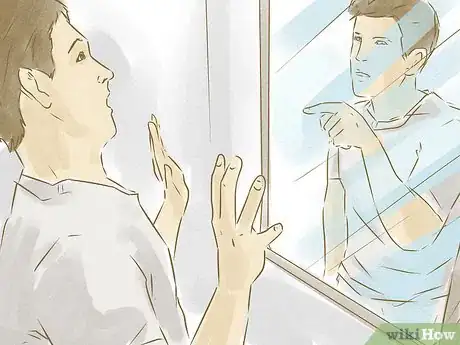
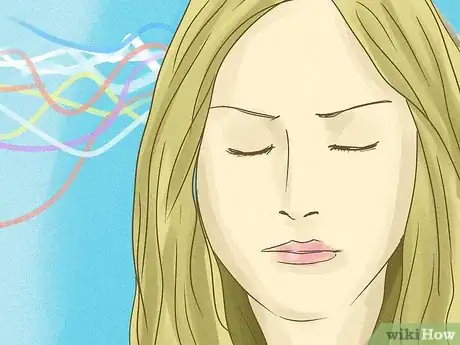

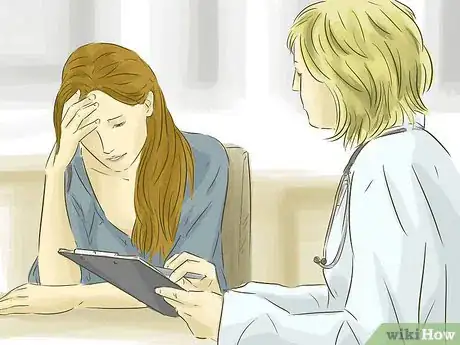
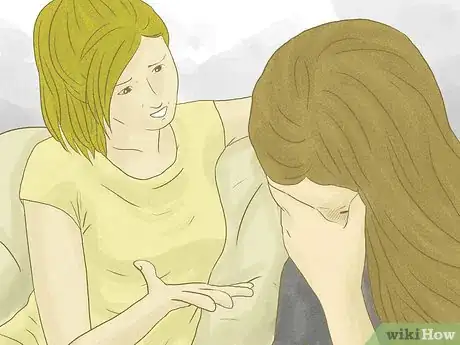


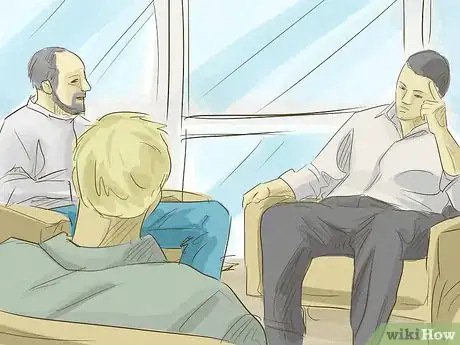

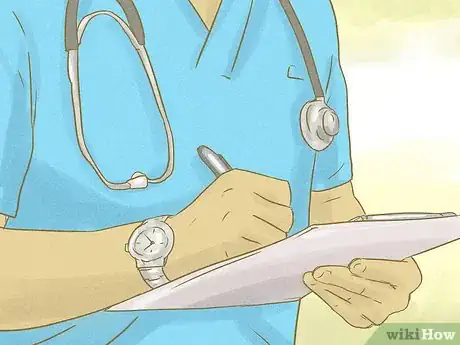
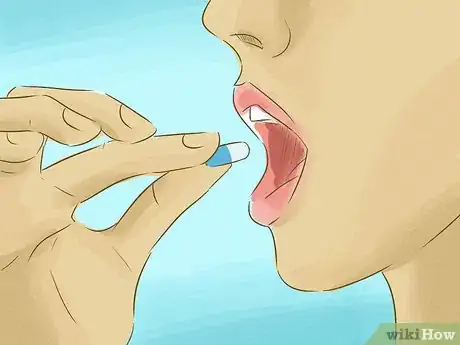
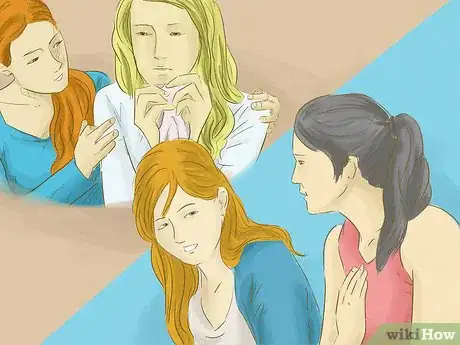
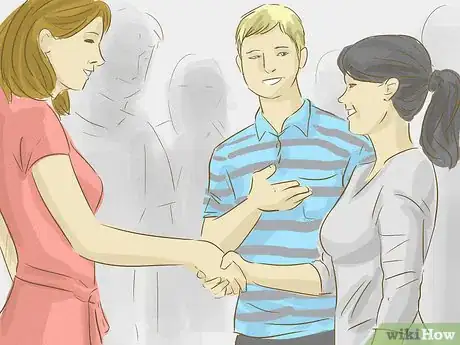


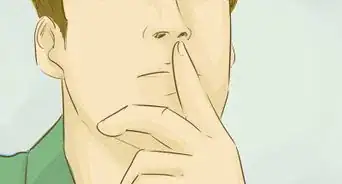
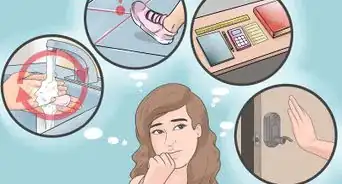
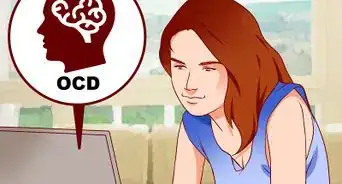




















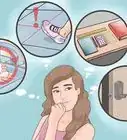



































Medical Disclaimer
The content of this article is not intended to be a substitute for professional medical advice, examination, diagnosis, or treatment. You should always contact your doctor or other qualified healthcare professional before starting, changing, or stopping any kind of health treatment.
Read More...